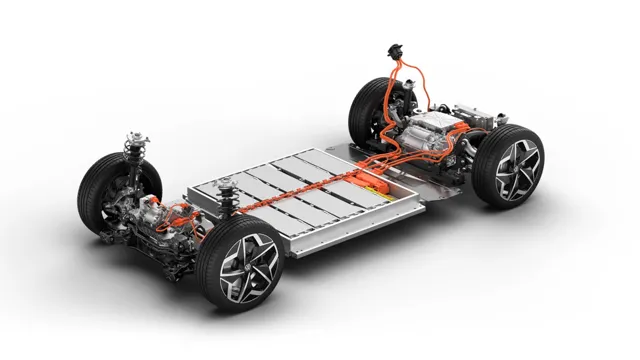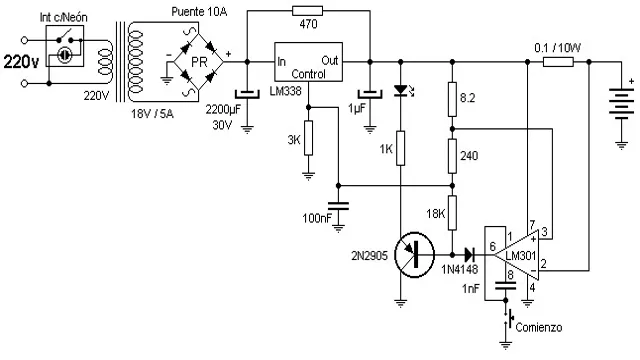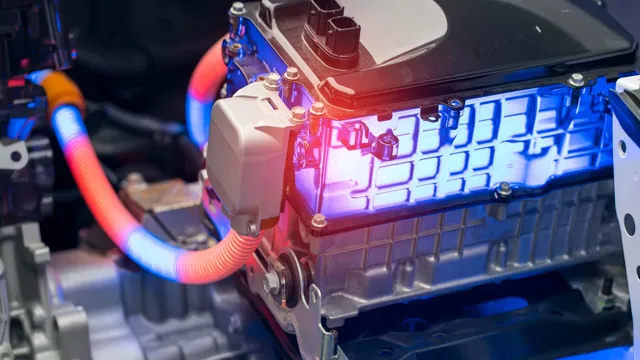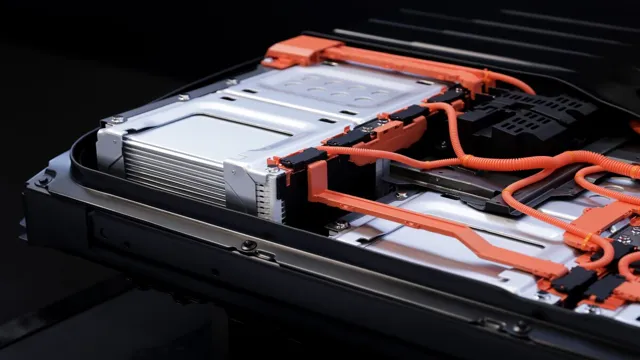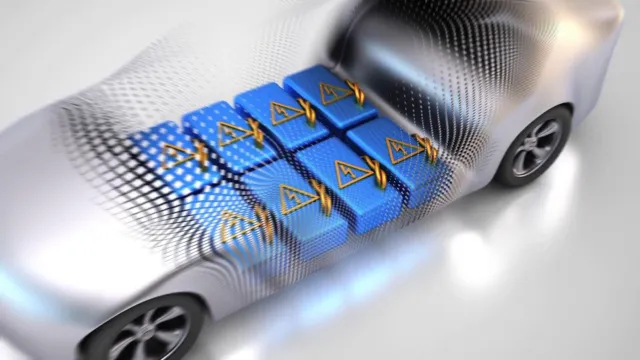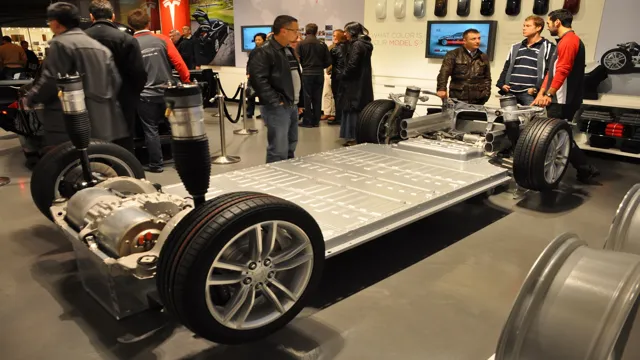Breaking the Barrier: Exploring the Relationship Between Battery Size and Range in Electric Cars
If you’re considering buying an electric vehicle, one of the key factors you’ll need to consider is the electric car battery size and range. This will determine how far you can travel on a single charge, as well as how long it will take to charge the battery. The size of an EV’s battery is measured in kilowatt-hours (kWh), and typically ranges from around 20 kWh for a small, city-focused vehicle, to over 100 kWh for larger SUVs and luxury models.
Generally speaking, the higher the battery size, the longer the range of the car, and the more power it will have for acceleration and top speed. Of course, there are many other factors that will impact the range of an electric car, including driving style, ambient temperature, and terrain. However, by understanding the relationship between battery size and range, you can choose the best option for your lifestyle and driving needs.
In this blog, we’ll explore the ins and outs of electric car battery size and range, including the tradeoffs between larger and smaller batteries, how range anxiety can impact your driving, and the future of battery technology. Whether you’re an EV enthusiast or simply curious about this emerging technology, we hope you’ll find this blog informative and engaging. So let’s power up and get started!
Overview of Electric Car Batteries
When it comes to electric cars, the battery size and range are crucial considerations for potential buyers. These factors will ultimately determine how far you can drive without stopping to recharge your car’s battery. Electric car batteries are typically measured in kilowatt-hours (kWh), with larger batteries generally providing greater driving range.
For example, the Tesla Model S Long Range has a 100 kWh battery, giving it a range of around 373 miles. On the other hand, a smaller Kia Niro EV has a 64 kWh battery, which provides a range of up to 239 miles. Of course, it’s important to note that driving conditions and driving habits can also impact the range of an electric car.
Factors like speed, terrain, and weather can all impact how far you can drive on a single charge. However, regardless of which electric car you choose, paying attention to battery size and range will help ensure that you get the most out of your electric vehicle.
Size Matters: Types of Batteries and Their Capacity
Electric Car Batteries Electric cars rely entirely on their batteries for power. These batteries come in different types and sizes, each with its unique characteristics and capabilities. Lithium-ion batteries are the most commonly used battery cells in electric cars, known for their high energy-density and long lifespan.
They can hold a large amount of energy, allowing electric cars to travel longer distances before requiring a recharge. Other types of batteries like nickel-metal hydride and lead-acid are less commonly used because they have lower energy-density and shorter lifespans. The capacity of an electric car battery is measured in terms of kilowatt-hours (kWh).
The higher the kWh rating of a battery, the more energy it can store, and the farther the electric car can go on a single charge. With electric cars becoming more popular, battery technology is advancing faster than ever, and soon we may see even more advanced battery technologies being adopted in electric cars.
Range Anxiety Explained: How Batteries Affect Distance
Electric car batteries are essential components of electric vehicles. These batteries are responsible for storing and providing energy to power an electric motor. They come in different sizes and capacities, and their performance largely determines the range of the vehicle.
The quality and durability of the battery are crucial to the overall driving experience. Batteries used in electric vehicles are usually made from lithium-ion cells, which are lightweight and have a high energy density. The technology behind electric car batteries is constantly improving, and manufacturers are striving to make batteries more efficient, durable, and affordable.
However, even with the latest technology, electric cars still face range anxiety due to the limitations of the batteries. Factors such as driving conditions, temperature, and usage patterns can all affect the battery’s performance and therefore its range. To overcome this challenge, automakers are developing new technologies, such as better battery cooling and heating systems, to help increase the range of electric vehicles.
While electric car batteries are not perfect, they are an important step towards a more sustainable and eco-friendly transportation system.
Factors that Affect Battery Size and Range
When it comes to electric car battery size and range, there are a number of factors that play a role. One of the most significant is the type and number of cells within the battery pack. Generally speaking, the more cells a car has, the greater its range will be.
Other factors that can impact range include the vehicle’s weight, the driving conditions, and the battery’s age and health. Additionally, factors like temperature and altitude can also impact the battery’s performance, so drivers in extreme environments may notice decreased range. Ultimately, finding ways to optimize battery performance and extending the life of the cells will be key in ensuring that electric cars continue to be a practical and sustainable form of transportation for the future.
Driving Style, Terrain, and Temperature
When it comes to electric vehicles, there are a few important factors that can affect the battery size and overall range. One of the biggest factors is driving style. If you tend to accelerate quickly, drive at high speeds, or brake suddenly, it can significantly reduce the range of your EV.
On the other hand, driving at a steady pace and using regenerative braking can help extend the battery life. The terrain you’re driving on can also make a big difference. Uphill driving will require more energy, which means a shorter range.
Finally, ambient temperature can have an impact on your battery life. Extreme hot or cold weather can reduce the battery’s capacity and overall range. By keeping these factors in mind and adjusting your driving habits accordingly, you can get the most out of your electric vehicle’s battery.
Battery Age and Maintenance
Battery One of the most crucial factors that can affect the size and range of your electric vehicle’s battery is its age and maintenance. Like any battery, the lithium-ion batteries used in EVs can lose their efficiency over time, which reduces their overall capacity. Regular use and charging can also accelerate this process.
However, proper maintenance and care can help extend the life of your battery and minimize its degradation. This includes keeping your battery within its optimal temperature range, avoiding deep discharges, and using a compatible charger. Furthermore, different driving conditions can also impact how much energy your battery consumes, such as driving at high speeds or with frequent stops and starts.
By paying attention to these factors, you can get the most out of your EV’s battery and ensure that it lasts as long as possible.
Charging Habits and Infrastructure
When it comes to electric vehicles, factors like charging habits and infrastructure can significantly impact battery size and range. If you charge your car at home every night, you may not need a large battery to cover your daily commute. However, if you take long trips or don’t have access to frequent charging, a larger battery may be necessary.
Additionally, the infrastructure available for charging can impact the size of your battery as well. If there are plenty of charging stations on your regular routes, you may not need as large of a battery as someone who has limited access to charging. Ultimately, the goal is to achieve a balance between battery size, range, and charging infrastructure to ensure that your electric vehicle meets your transportation needs.
Current Best Electric Cars by Battery Size and Range
If you’re in the market for an electric car, you likely want to know what your options are when it comes to battery size and range. Currently, the best electric cars on the market range from compact cars to SUVs, with battery sizes ranging from 40 kWh to 100 kWh. In terms of range, the top electric vehicles can go more than 300 miles per charge, while others have a range of around 100 miles.
The Tesla Model S is currently one of the best electric vehicles when it comes to range, with the Long Range model offering up to 402 miles on a single charge. Other popular electric cars include the Chevrolet Bolt EV, which boasts a 259-mile range, and the Nissan Leaf, which has a range of up to 226 miles. Of course, the range you need will depend on your lifestyle and regular driving habits, but with so many options available, you’re sure to find something that suits you and your needs.
Tesla Model S and Model X
Tesla Model S and Model X are undoubtedly two of the best electric cars available in the market. With their massive battery sizes and remarkable range, they have set new benchmarks in the electric car industry. The Tesla Model S offers a battery size of 100 kWh and a range of up to 402 miles on a single charge, while the Model X has a similar battery size and can travel up to 371 miles in one go.
These impressive battery sizes enable the vehicles to run for longer durations and cover more miles without the need for frequent recharging. What’s more, both the models provide lightning-fast acceleration and are equipped with advanced safety features that make them stand out in their league. With Tesla’s cutting-edge supercharger network, charging these vehicles has never been easier, making the Model S and X a popular choice among many EV enthusiasts.
Overall, the Tesla Model S and Model X remain unbeaten when it comes to providing a top-notch electric driving experience.
Chevrolet Bolt EV
When it comes to electric cars, battery size and range are two of the most important things to consider. The larger the battery, the further you can go on a single charge. And with the ever-expanding network of charging stations, it’s easier than ever to find somewhere to top up your battery.
One of the current best electric cars on the market for battery size and range is the Chevrolet Bolt EV. With a range of over 250 miles on a single charge, it’s perfect for those who need a car for daily commutes, but also want to take longer trips without worrying about range anxiety. Plus, its spacious interior and smooth driving experience make it an all-around winner for electric car enthusiasts.
While there are certainly other great options out there, the Bolt stands out for its impressive combination of battery size and range.
The Future of Electric Cars
The future of electric cars is looking bright, with advancements in battery technology and increased demand for environmentally-friendly transportation. One key factor driving the growth of electric cars is the battery size and range, as it directly impacts the usability and practicality of these vehicles. In recent years, we’ve seen significant progress in battery technology, with the production of higher capacity batteries that can store more energy and provide longer driving ranges.
For example, Tesla has introduced a battery with a range of over 500 miles on a single charge, making it more convenient for drivers to use electric vehicles for longer trips. With further research and development, we can expect to see even more improvements in battery technology, resulting in increased range, decreased charging times, and reduced costs. As technology advances, we can look forward to a more sustainable future with electric cars leading the way.
Advancements in Battery Technology and Charging Speeds
Electric cars are becoming an increasingly popular choice for environmentally conscious consumers. With advancements in battery technology and charging speeds, the future of electric vehicles looks brighter than ever. While early electric cars had limited range and long charging times, new batteries can offer hundreds of miles on a single charge, while fast-charging stations can get them back up to 80% capacity in just 30 minutes.
One of the most exciting new developments is solid-state batteries, which promise even faster charging times and greater range than current lithium-ion batteries. As battery technology continues to advance alongside the growth of renewable energy sources, electric cars are poised to become the norm rather than the exception on our roads. With lower emissions and more efficient performance, electric cars are a promising solution for a greener future.
Expansion of Charging Infrastructure
As electric cars continue to gain popularity, the demand for charging infrastructure is also on the rise. The expansion of charging infrastructure is crucial for the widespread adoption of electric vehicles, as drivers need to have access to reliable and convenient charging options. Fortunately, many charging companies are working to expand their networks, and governments are investing in charging stations to promote the adoption of electric vehicles.
In addition to expanding the number of charging stations, companies are also developing new technologies to make charging faster and more convenient. For example, some companies are working on ultra-fast charging technology that can provide a full charge in just a few minutes. Others are developing wireless charging technology that allows drivers to charge their cars simply by parking them in designated spots.
The growth of electric cars and the corresponding expansion of charging infrastructure will have a significant impact on the transportation industry and on our environment. With more electric cars on the road, we can reduce our reliance on fossil fuels and help to mitigate climate change. Additionally, the growth of the electric vehicle market will create new job opportunities and drive innovation in the automotive industry.
Overall, the expansion of charging infrastructure is a crucial step in the transition to a more sustainable and environmentally friendly transportation system. With continued investment and innovation, we can create a future where electric cars are the norm and charging is easy, accessible, and convenient for all drivers.
Market Trends and Future Models
As the world shifts towards sustainable energy, electric cars are becoming increasingly popular. The advancements in technology have made electric cars more efficient and affordable for the average consumer. The future of electric cars looks promising as more and more manufacturers are starting to invest in this market.
With innovations such as wireless charging, longer-lasting batteries, and faster charging times, electric cars will soon become more convenient than ever before. The demand for electric cars is expected to surge in the coming years, making it a profitable industry for investors. The key to the success of electric cars lies in making them more affordable and accessible to the general public.
As we move towards a greener future, the electric car industry will have an important role to play in reducing the carbon footprint and creating a sustainable future for generations to come. It’s time we start thinking about the future, and electric cars are definitely a step in the right direction.
Conclusion
After examining the relationship between electric car battery size and range, one thing is clear: Size does matter, but it’s not the only factor. A larger battery will undoubtedly provide a longer range, but it’s also important to consider the efficiency of the vehicle and driving habits. In the end, it’s up to the consumer to decide what range meets their needs and what size battery fits their budget.
So, as we move towards a more sustainable and electric future, remember: it’s not just about the size, it’s how you use it.”
FAQs
What is the typical battery size of an electric car?
Electric car battery sizes vary, but they typically range from 40kWh to 100kWh.
How does battery size affect an electric car’s range?
Generally, the larger the battery, the longer the range of the electric car. A car with a 40kWh battery might have a range of around 150 miles, whereas a car with a 100kWh battery could have a range of over 300 miles.
Do all electric cars have similar battery ranges?
No, each electric car model has its own unique range. Factors that can affect an electric car’s range include its battery size, its weight, the efficiency of its motor, and driving conditions.
Can you upgrade an electric car’s battery size for longer range?
In some cases, it may be possible to upgrade the battery size of an electric car for a longer range. However, this can be expensive and may not be available for all models. It’s often best to choose an electric car with a battery size and range that meets your needs from the start.
